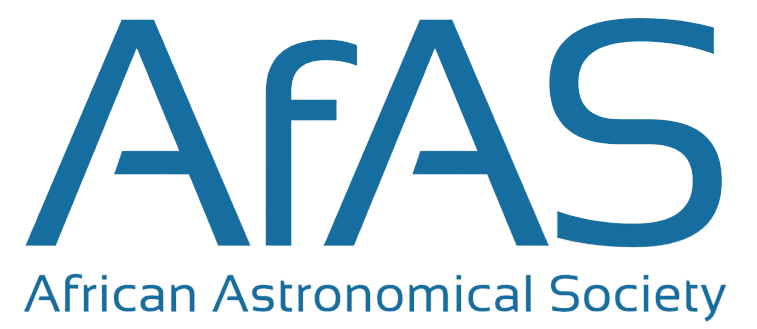Ahmed Ammar

Ahmed Ammar is a member of the Laboratory of Atomic Molecular Spectroscopy and Applications at the Department of Physics; Faculty of Sciences of Tunis; University of Tunis El Manar. His research focuses on space weather in general and more specifically on the study of the effects of terrestrial and extraterrestrial events on the physical properties of the lower region of the Earth’s ionosphere. He is a member of several research groups in this field such as the International Space Weather Initiative (ISWI), the Groupe de Recherche en G ophysique Europe Afrique (GIRGEA) and he is also a delegate of the Committee on Space Research (COSPAR) in Tunisia. He is also interested in the popularization of astronomy in Tunisia through his activities with the Astronomical Society of Tunisia and with Tunisian universities and regional/international astronomy organizations.
ALEMIYE MAMO YACOB

Claudio Moisés Paulo
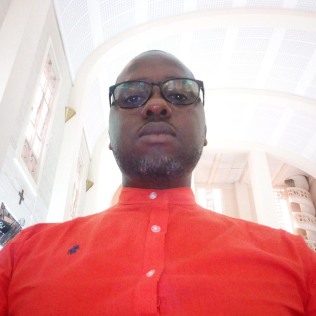
Naomi Asabre Frimpong

Naomi believes Africa is ripe to take a bold step into being a contributing partner in astronomy research. She is a motivated and hardworking scientist who is eager to put Africa on the scientific map using her research work and her outreach activities. She is always ready to speak up and about Astronomy and
James Chibueze
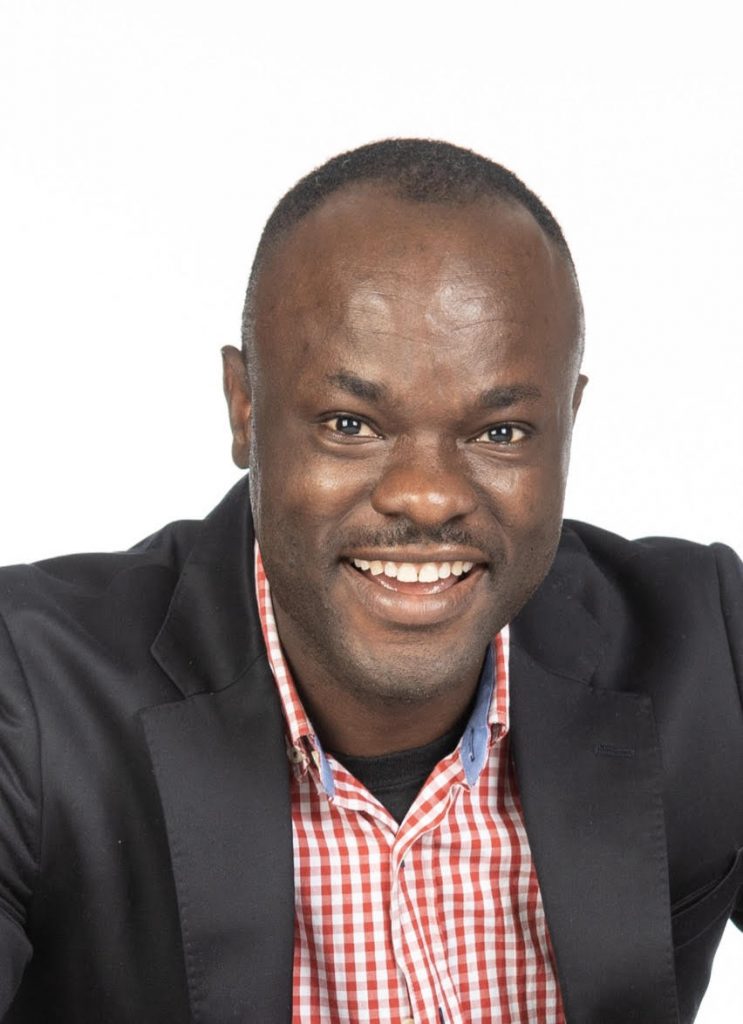
His research is mainly focused on the high-resolution study of massive star formation processes from their earliest evolutionary stages. James joined East-Asia ALMA Regional Centre at the National Astronomical Observatory of Japan (NAOJ) as Project Research Fellow in 2013 and later in 2014 was appointed a Project Assistant Professor. In 2015, he moved to the University of Nigeria as a Lecturer and 2 years later (January 2017) moved to South African Radio Astronomy Observatory (SARAO) formerly known as Square Kilometre Array (SKA) South Africa as a VLBI Commissioning Scientist. In 2019, he join North-West University as an Associate Professor and now a full Professor of Astrophysics.
In recent years, James has used the MeerKAT telescope to expand his research horizon to include the study of radio galaxies and galaxy clusters.
Oyirwoth Patrick Abedigamba
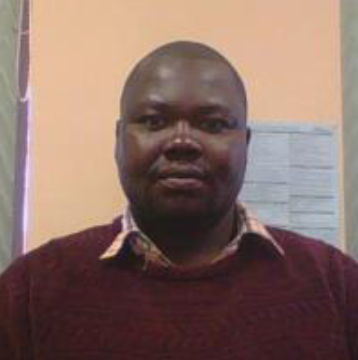
Oyi as he is commonly known among his current and past students, peers and colleagues, completed his PhDin Astrophysics at North-West University (South Africa) -2016, MScin Astrophysics and Space Science through the National Astrophysics and Space Science Program (NASSP) at the University of Cape Town -2010, BSc –Honours in Astrophysics and Space Science through the National and Astrophysics Program (NASSP) at the University of Cape Town -2008, and his undergraduate studies at Mbarara University of Science and Technology (Uganda) -2007. His research interests lie in the area oftheoretical and observational Astrophysics. He has collaborated actively with researchers in several other disciplines of Physics.
Oyi has served on the South African Institute of Physics (SAIP) local conference committee -2021 and NASSP winter school asa tutor (several occasions) and lecturer for NASSP workshop/program (2019 -2021). He has served on the North-West University Physics Internal and External Program evaluation and Kyambogo University Curriculum Review Committee2022. Oyi has recently developed Astrophysics module/course unit for postgraduate students at Kyambogo University, Uganda.
Oyi is the instructor for a popular computational method module/course unit at the Physics Department, Kyambogo University (Uganda), as a way of introducing skills needed to handle Astrophysics future research. He has mentored NASSP honours students in Astrophysics research, MScstudents both at North-West University & Mbarara University of Science and Technology and a Postdoctoral Fellow(in Astrophysics).
For additional information see:
https://scholar.google.co.za/citations?user=FfvdBTEAAAAJ&hl=en
https://www.researchgate.net/profile/Oyirwoth-Abedigamba
https://orcid.org/0000-0002-9755-9112
Elizabeth Naluminsa

Following an undergraduate degree in physics and education (physics major), she joined the National Astrophysics and Space Science Programme in 2011 for her honours and masters degrees at the University of Cape Town after which she undertook her doctoral research under the South African SARChI bursary of the NRF. Post graduation, she returned to Uganda and worked as a lecturer at Kyambogo University Uganda while doing astronomy outreach to secondary schools, with resources support from the IAU Office of Astronomy for Development and the SALT Collateral Benefits programme. She held the first ever astronomy exhibition at Kyambogo university in 2020. She is at present involve in ongoing efforts by the Space Technology Agency Uganda to take astronomy to schools in the refugee settlements of Uganda, and documenting the indigenous astronomy knowledge of the refugee communities for posterity.
Manasse Mbonye

students.
Maram Kaire

Co-founder and current President of the Senegalese Association for the Promotion of Astronomy (ASPA), He is presented by the famous magazine CIEL & ESPACE and radio RFI as being the engine of the development of Astronomy and space sciences in Senegal.
In 2018, Maram KAIRE ensured the Technical Coordination of an important NASA mission carried out in Senegal to observe a stellar occultation by the asteroid ARROKOTH. This activity, as part of the NEW HORIZONS space mission which flew over the planet PLUTON, saw the collaboration of around forty American and French astrophysicists with Senegalese scientists.
In 2020 then 2021, NASA renews its confidence in it through two new highly important missions to observe stellar occultation by the Trojan asteroids POLYMELE and ORUS, two of the 7 targets that the space probe LUCY will visit between 2027 and 2033.
Maram KAIRE was appointed, in March 2020, National Astronomy Education Coordinator (NAEC) for Senegal by the International Astronomical Union (IAU), the organization that coordinates the work of astronomers and astrophysicists around the world with the mission to help to develop astronomy in the Senegalese education system.
Initiator of many astronomy development projects such as the SPACEBUS concept (the largest astronomy promotion activity ever organized in Africa), founding member of the African Astronomical Society (AFAS), He is also a member of the Executive Committee AFIPS (Africa Initiative for Planetary and Space Sciences) which works to develop planetary and space sciences on the African continent.
Between 2015 and 2019, he was Technical Advisor to the Minister of Higher Education, Research and Innovation, in charge of the Promotion and Popularization of Scientific Culture. Focal point of the Ministry on issues related to space, he had to lead partnership projects with the CNES (Centre National d’Etudes Spatiales de France) and ARIANEGROUP (Operator of the Ariane rocket) for the development of university courses in science and the installation of a center for the assembly, integration and testing of microsatellites in Senegal.
A true scientific popularizer in the service of the development of astronomy and STEM (Science, Technology, Engineering and Mathematics), he was awarded a grant, in 2017, from the IVLP program (International Visitor Leadership Program) of the United States Department of State in the field of “science and technology education for young people”.
He is Managing Director of AFRICASPACE, a company specializing in strategic support for African states in the development and implementation of their space policy.
MIRJANA POVIĆ
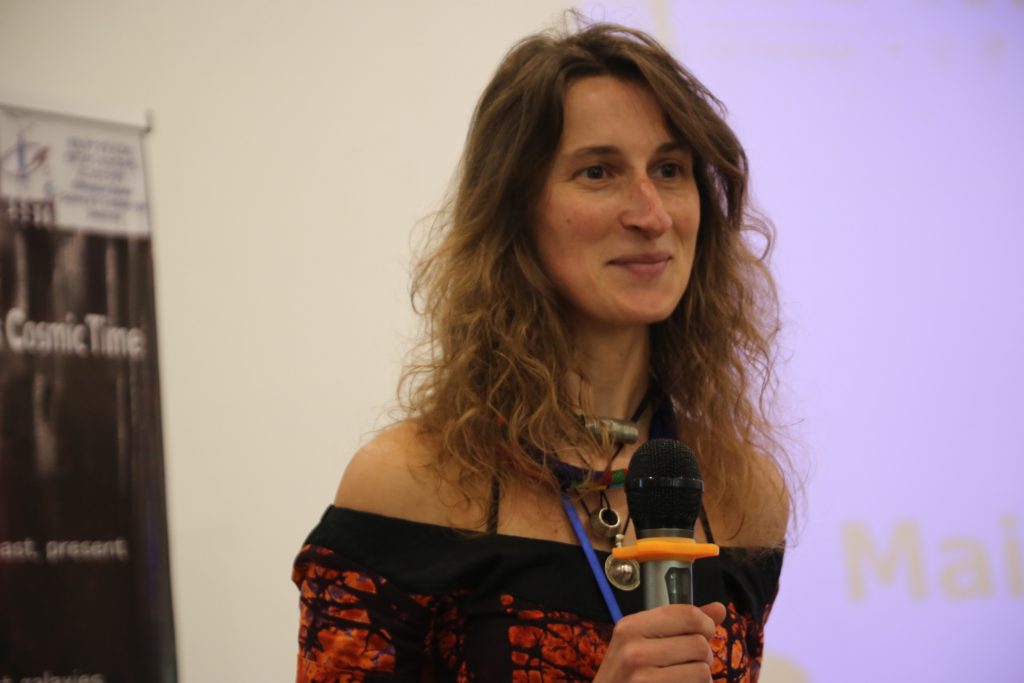
Noorali Tayabali Jiwaji

Sinenhlanhla Precious Sikhosana
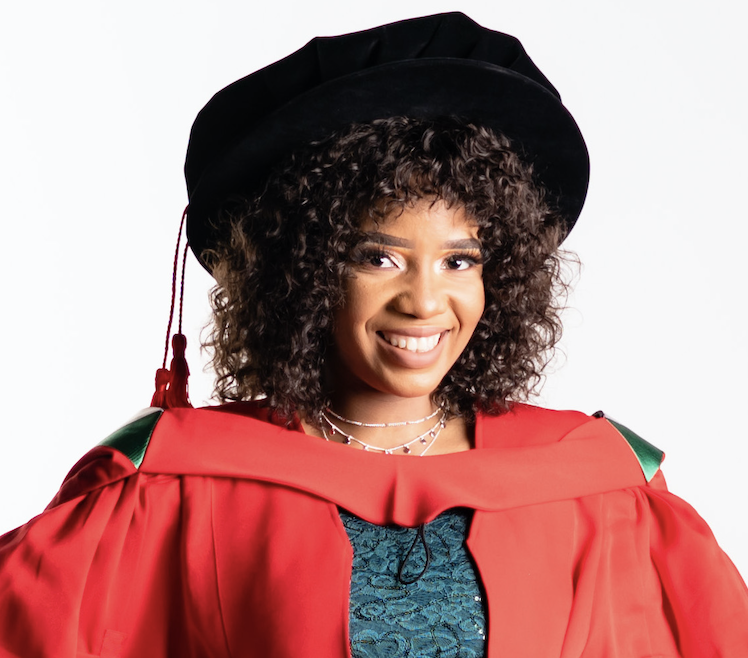
In her undergrad years, she received a scholarship for being amongst the top 10 African female achievers in her college for three consecutive years. She has also received numerous awards in her postgrad career. Some awards include; UKZN’s Wonder Women in Science in 2017, the Department of Science & Technology TATA African Women in Science Doctoral Scholarship in 2018 and the Lo’real-UNESCO For Women In Science research grant in 2019. She was amongst the top 20 young scientists selected to represent South Africa at the 69th Lindau Nobel Laureate Meeting in Germany in 2019. She was part of the South African Young Academy of Science’s blog team in 2020.
Dr Sikhosana is passionate about empowering the youth through education. Hence, she is part of UKZN’s Astrophysics Research Centre outreach committee. She has participated in various educational outreach programs in partnership with UKZN’s PR office. She was recently elected as the Astrophysics Research Centre’s diversity and inclusion committee member, as her passion also extends to the transformation of the science academic sphere.
Sthabile Kolwa

At the start of the post-PhD phase of my career, I took a postdoc position at the Inter-University Institute for Data Intensive Astronomy (IDIA) in Cape Town for a year. While here, I continued working on research projects I had begun with collaborators from my former institute who supervised my PhD project. I also started working on projects associated with the MeerKAT International GHz Tiered Extragalactic Exploration (MIGHTEE) working group which I had formed a connection with during my MSc. While in the first year of the postdoc, I was offered a lecturing position at the Physics Department of the University of Johannesburg. Given my fondness for the teaching and learning process, I took on this new role knowing that I would have the opportunity to carry out research while also being more directly involved with students as a lecturer and project supervisor. The educational aspect of this role has provided me with the motivation to continue working in this field as I have a personality type that is geared more strongly towards altruism and being motivated by a greater purpose. Having a direct view of the impact higher learning has on young minds and lives has made my work in Astrophysics worthwhile.
Within research, my main research interests fall under Extragalactic Astronomy. My first research project involved a study of the correlation between group environment groups of AGN and their radio power which represents the strength of their jets (Kolwa et al 2019a). This publication was partly based on my MSc research work.
During my PhD, I became a member of a working group that investigates the circum-galactic medium within distant radio galaxies (beyond redshift two i.e. z > 2). We make use of ALMA (Atacama Large Millimetre/sub-millimetre Array) and MUSE (Multi-unit Spectroscopic Explorer) datasets to dissect the structure of the extended halo gas around these galaxies and attempt to trace their origin. These galaxies host radio-loud active galactic nuclei (AGN) and are therefore excellent tracers for kinetic feedback between the AGN and the stellar disk as well as its extended interstellar and circumgalactic medium gas. In 2019, we published a peer-reviewed paper using the MUSE data to study the ionised component of the CGM around a z=2.9 galaxy (Kolwa et al 2019b). A follow-up study, which focusses on the molecular gas traced via neutral carbon line emission and continuum, is in preparation. Up until now, the complex physics underlying interactions between the radio jets produced by the AGN and the extended CGM have not been understood very well. This is especially true for galaxies at high redshifts. This subject is therefore a major frontier for new discoveries concerning the evolution of distant galaxies.
Additionally, as a member of the MIGHTEE working group, I am also interested in exploring the properties of star-forming galaxies and AGN host galaxies. The Early Science MeerKAT detections of such galaxies within the XMM-LSS and COSMOS fields will form the basis for our upcoming research. We will combine the MeerKAT data with uGMRT (upgraded Giant Metrewave Radio Telescope) detections within the same fields to obtain radio spectral indices spanning 0.3 – 2.0 GHz in observed frequencies. This study will later be extended to include multi-wavelength photometry with which we will perform a spectral energy distribution (SED) analysis. These procedures will provide insights into the star-formation and AGN properties of the galaxies detected by MeerKAT.
Throughout my early-research career this far, I have given numerous talks and seminars at local and international seminars, meetings, and conferences. I am also developing a popular science communication page where I discuss Astronomy developments within South African front in a way that is accessible to the public. It can be accessed at the web address: sthabile.medium.com (hosted by the website Medium).
While engaged in teaching and research, I also make it a priority to motivate future STEM within my immediate community. I aim to work with my group, Astronomy in Colour, to encourage young Africans to focus on building a future within Astronomy or any STEM field. We do so via webinars, social media, planetarium visits and school events/activities we are currently planning.
Thebe Rodney Medupe

Prof. Medupe is also passionate about public outreach of astronomy, having been part of two African astronomy documentary movies, namely Cosmic Africa and the Scribes of Timbuktu. Cosmic Africa deals with African indigenous Astronomy. The Scribes of Astronomy looks at the astronomy content of the ancient manuscripts of Timnuktu in West Africa. The international success of Cosmic Africa has led to him being listed in Africa’s most influential people by the New African Magazine which is based in London in 2011 and 2014. Prof. Medupe was also invited to give public lecture on the subject of Cosmic Africa at the Royal Society events in London. He has written two children books titled “The Stars under the African Skies” and “Children of Stars”. He also has written a High School level book on “Astronomy during Timbuktu”. He has written chapters in books on the topic of history of African astronomy. Prof. Medupe also established and founded the Mahikeng Astronomical Observatory in 2015. The observatory was officially opened by the South African minister of Science and Technology in 2018. The main telescopes of this observatory are the 16inch Meade and the Planewave 20inch CDK20 with QSI 683 and SBIG Aluma AC4040 Cmos cameras. The observatory also has an echelle spectrograph with resolution R=10000. The observatory holds monthly open nights for the public and schools in the North West Province of South Africa.
Prof. Medupe’s leadership ability is shown by the fact that he is currently the deputy Dean for Community Engagement at the NWU since 2018. He has also been involved in the National Research Foundation (NRF) astronomy advisory Council and other panels. His experience and passion for Africa and history of Astronomy in Africa will be invaluable to the advancement of the African Astronomical Society.
Ramotholo Sefako
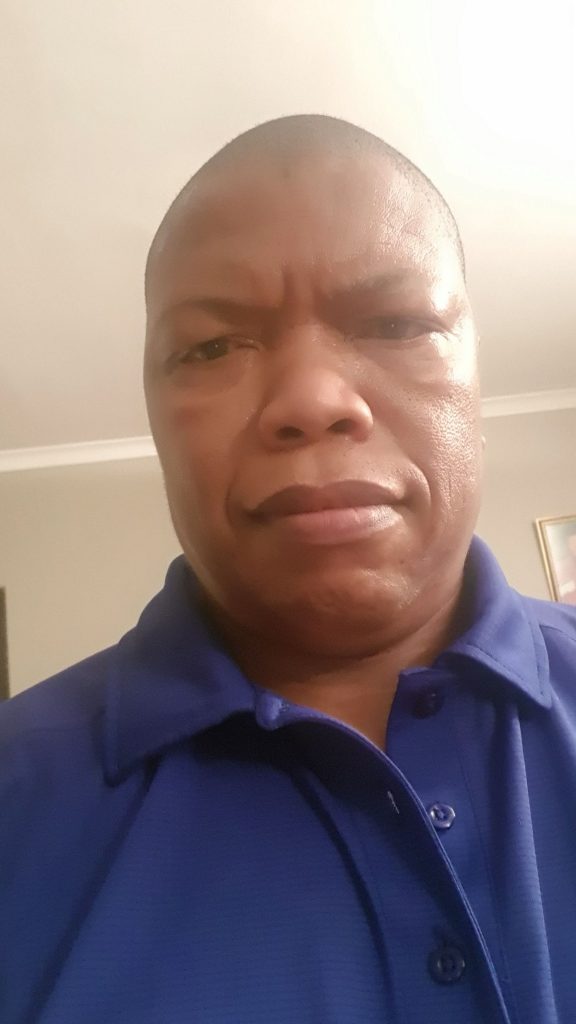
Ramotholo is a member of the International Astronomical Union (IAU), the South African Institute of Physics (SAIP), Astronomical Society of Southern Africa (ASSA) and recently African Astronomical Society (AfAS). He served in the SAIP as Astronomy and Space Science Specialist Group chairperson from July 2008 to September 2010, and as a fundraiser between 2006 and 2008. He was a member of the IAU Membership Committee from 2012 to 2018. He also served as one of the Organising Committee members of IAU Division B Commission 50: Protection of Existing & Potential Observatory Sites (2012 to 2015). He was part of the Scientific Organising Committee (SOC) for the IAU General Assembly Focus Meeting #21 on “Mitigating Threats of Light Pollution and Radio Frequency Interference” held in Hawaii in August 2015. He was a member of the SOC for the IAU Special Session 17 (SpS17), “Light Pollution: Protecting Astronomical Sites and Increasing Global Awareness through Education” held in Beijing in 2012. He is currently a member of the Organizing Committee of Inter-Division B-C Commission on Protection of Existing and Potential Observatory Sites. Outside of astronomy, he has completed NRF Management Development Programme (MDP) offered by the University of Stellenbosch Business School, and SAIM Programme from UNISA’s Centre for Business Management. He has also served as a business continuity and risk management coordinator at SAAO.
Yosry Ahmed Azzam

He is currently a Professor at the National Research Institute of Astronomy and Geophysics (NRIAG).
He worked as an Assistant and Associate Professor at the college of science, Majmaah University, KSA for 10 years.
His current research interests include artificial intelligence in the field of astrophysics, astronomical instruments, and thin film deposition leading to publications in the top journals in these fields. He has an excellent experience related to astronomical telescopes, astronomical instruments, coating & vacuum instruments, and CCD cameras .
Dr. Azzam authored/co-authored over 25 International journal articles, conference proceedings. He has several publications in reputed and high impact journals published by IEEE, Elsevier, Springer, and others. Dr. Azzam is reviewing papers for many local and international journals and has joined many of research projects.
Dr. Azzam is currently the PI of the project: “Kottamia Faint Imaging Spectro-Polarimeter (KFISP)” that has been recently developed and designed to be mounted to the Cassegrain focus of the 1.9-m telescope at Kottamia Astronomical Observatory (KAO) in Egypt. He is also a member of the project: “Observing and studying astronomical transient phenomena using the Kottamia Astronomical Telescope”. As well, he is a member of the committee of the future project: “Egyptian Large Optical Telescope (ELOT)” which is expected to be of a size of 6.5m. The project is currently in the site testing phase which is expected to be finished within 30-36 months.
Zouhair Benkhaldoun

